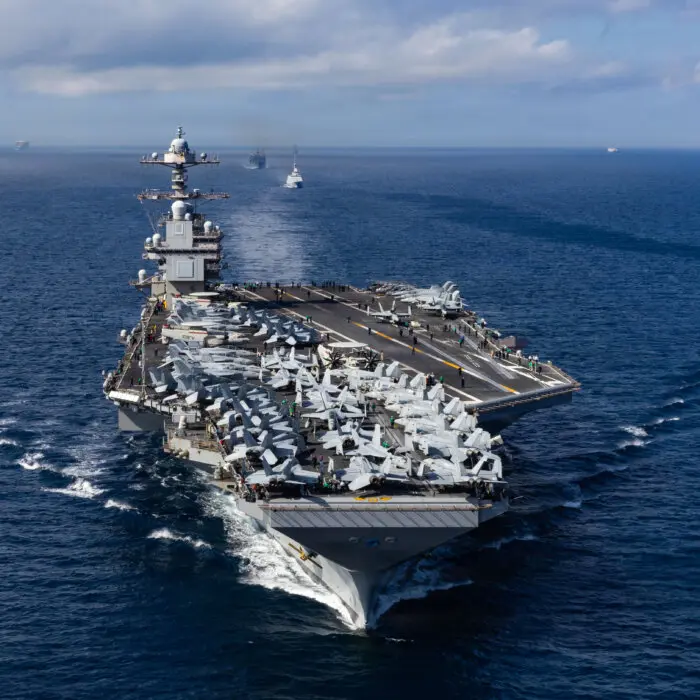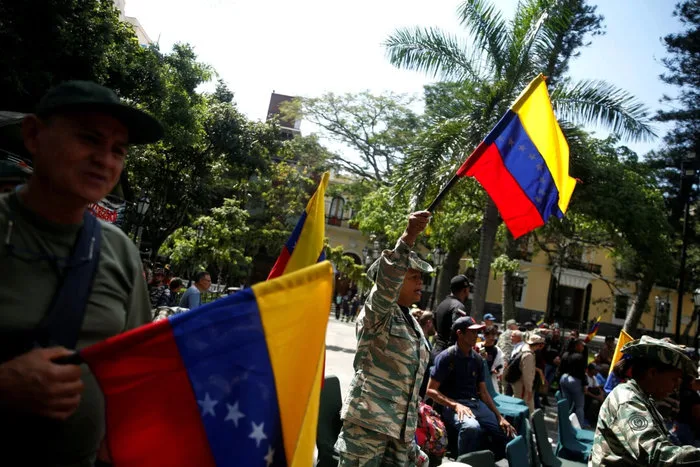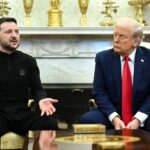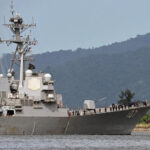By Kimberly Hayek
Following the U.S. Senate rejecting a resolution to block U.S. military actions against Venezuela, and the Pentagon confirming that the largest U.S. aircraft carrier is heading to Latin America, Venezuela is countering with its own two-day military mobilization.
Venezuelan Defense Minister General Vladimir Padrino López announced a large-scale military mobilization during a news conference on Tuesday, calling it a defensive response to perceived threats from the United States.
“Almost 200,000 troops have been deployed throughout the national territory for this exercise, and I must say that this is not at the expense of the daily deployment carried out by the Strategic Operational Command,” Padrino López stated in the televised address.
Venezuela’s ministry of defense also posted about the exercise on social media.
The address, broadcast on state-run Venezolana de Televisión (VTV), outlined the expansion of President Nicolás Maduro’s “Independence Plan 200,” a civic-military strategy to combine conventional armed forces and police, as well as other security bodies, in the name of national defense.
Padrino López’s remarks took place amid a backdrop of expanded U.S. military activity in the Caribbean Sea, such as the deployment of the USS Gerald R. Ford aircraft carrier, the largest U.S. aircraft carrier, and associated naval and aerial assets. Trump also authorized the CIA to operate covertly in Venezuela, he confirmed last month.

“The enhanced U.S. force presence in the Southern Command area of responsibility will bolster U.S. capacity to detect, monitor, and disrupt illicit actors and activities that compromise the safety and prosperity of the United States homeland and our security in the Western Hemisphere,” Chief Pentagon Spokesperson Sean Parnell said in a statement on Tuesday.
Since September, American forces have destroyed several boats off the Venezuelan coast and in other areas, saying those boats were operated by a designated terrorist organization and involved in trafficking drugs into the United States. At least 19 confirmed strikes have been carried out in the Caribbean Sea and off the Pacific coasts of Latin American countries.
Trump has accused Maduro of backing drug cartels his country, an allegation Maduro has denied.
Venezuelan officials frame U.S. actions as an “imperialist threat” with the goal of overthrowing Maduro and exploiting Venezuela’s resources, such as the country’s oil reserves. The United States has said its operations are an anti-drug trafficking campaign against the Latin American country.
Secretary of War Pete Hegseth has compared cartels to the al-Qaeda terrorist group on social media.
“Narco-terrorists intending to bring poison to our shores, will find no safe harbor anywhere in our hemisphere,” he wrote on X in October. “Just as Al Qaeda waged war on our homeland, these cartels are waging war on our border and our people. There will be no refuge or forgiveness—only justice.”
Padrino López said the exercises were designed to “optimize command, control, and communications.”
Venezuela simultaneously faces economic sanctions and political tensions in the aftermath of contested elections.
Jack Phillips contributed to this report





